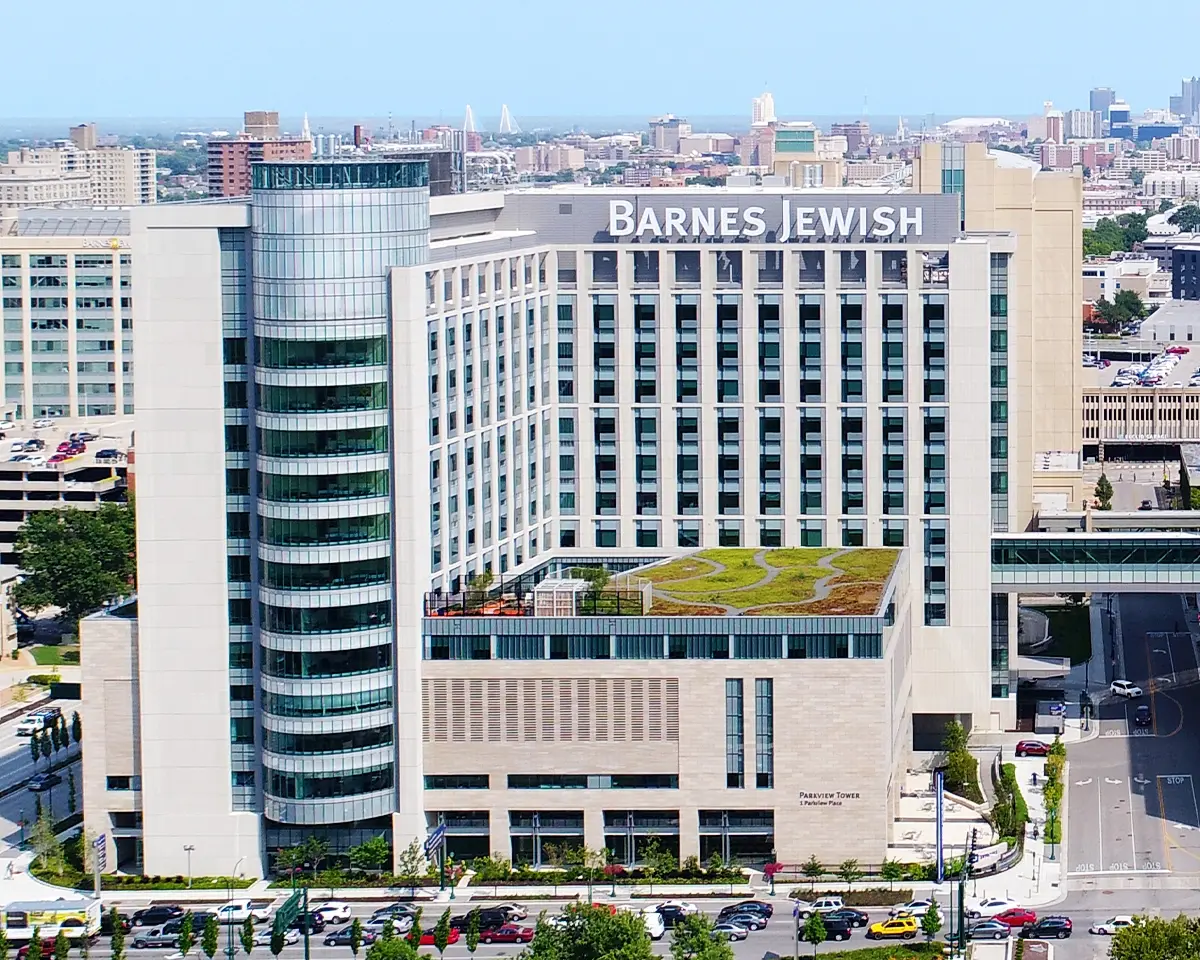Lung Transplant
Our lung transplant program is one of the most experienced programs in the world. Our specialists have performed over 2,000 adult lung transplants since the program began in 1988.
If you or a loved one needs a lung transplant, our expertise provides you with advanced care and compassionate support.
Washington University physicians deliver national leading transplant care at Barnes-Jewish Hospital and St. Louis Children's Hospital. Our goal is for you to regain your health. After your lung transplant, we help you return to your daily activities and achieve an excellent quality of life. A team of experienced specialists supports you through the entire lung transplant process, answering your questions and easing your concerns.
When you to come to us for lung transplant surgery, you can expect:
Outstanding outcomes: Our short- and long-term lung transplant survival rates are above national averages. We achieve excellent outcomes despite offering the procedure to people who are considered high-risk.
High volume specialty: We are one of four programs in the country to reach 2,000 lung transplants. Our experience and expertise guide us as we provide you with outstanding care.
Shorter wait times: You can typically receive a transplant in three months — about one month shorter than the national average. We work closely with our local organ procurement organization (OPO), Mid-America Transplant, resulting in quicker wait times.
Comprehensive, team approach: We give you complete, expert care and support every step of the way. Your entire lung transplant team focuses solely on your lung transplant.
Access to research: Our internationally recognized Washington University physician partners conduct innovative research to improve patient care. As a result, our partnership with Washington University provides access to the latest advances in lung transplantation.
Support groups: Lung transplantation can be physically and emotionally draining. We offer transplant support groups so you can meet with others who have experienced organ transplants, finding support and understanding.
After a 1.5-year wait, Mike was the 2,000th patient to receive a new set of lungs thanks to surgeons at BJC.
Chronic lung conditions like pulmonary fibrosis, emphysema and cystic fibrosis may lead to lung transplant surgery when other treatments aren’t working. Our specialists speak with you about your lung transplant options and tailor an effective treatment plan.
We offer three lung transplant options:
Your surgeon removes both lungs and replaces them with healthy lungs from a deceased donor. A double lung transplant is sometimes called a bilateral lung transplant.
Your surgeon removes a single diseased lung and replaces it with one healthy lung from a deceased donor.
At St. Louis Children’s Hospital, lung transplant surgery is available to children of all ages, including infants.
You stay in the hospital for about three weeks after a lung transplant. During this time, a team of specialists prepares you for long-term post-transplant care.
This team includes:
Surgeons
Pulmonologists
Post-transplant nurse coordinator
Pulmonary rehabilitation therapists
Dietitians
Social workers
After we discharge you from the hospital, our post-transplant nurse coordinator stays in regular contact to track your recovery. You stay in the St. Louis area for three months following your transplant for regular follow-up exams.
Our specialists monitor you closely with:
Frequent doctor visits for lung and heart function tests, blood tests and X-rays
Pulmonary rehabilitation sessions five days a week
Over time, we transition your routine care to your primary care physician. For continuity of care and to ensure the best outcomes, we follow our patients for the life of their transplant.
After surgery, you need anti-rejection medications to suppress your immune system so your body doesn't reject your transplant. Because these medications suppress your immune system, you are more prone to infection, especially during the first three to six months after surgery.
Our specialists advise you on how to prevent and recognize infection. We also help you manage and understand your medications, including over-the-counter drugs.
We monitor you for medication side effects and early signs of rejection. It’s important that you let us know about any possible organ rejection symptoms, which may include:
Cough
Fatigue
Fever
Shortness of breath
 Barnes-Jewish Hospital
Barnes-Jewish Hospital
Schedule your appointment
Call (314) 362-9355 or (800) 392-0936 for more information about our transplant services or to schedule an appointment.